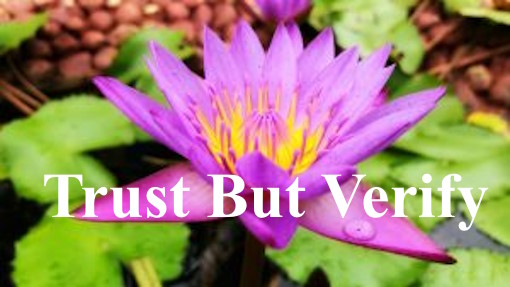How To Avoid Being Scammed

Of all the people who have used the Trusted Helping website to ask for help, the vast percentage are real people requiring real assistance. However, there always seems to be bad actors who try to take advantage of others for their own benefit.
Just because you find a person on Trusted Helping who is looking for assistance, you have to be careful. A platform like Trusted Helping is likely to be a target for a few scammers to use. They don't want assistance; they just want to cheat you out of your money. We chose the term "Trusted" Helping because we want you to trust who you are wanting to help. And avoid those who are just wanting to get your money. Here's what to watch out for, once you contact someone you'd like to help.
Firstly, never give out your financial information of any kind. It's up to you how you want to arrange things.
Secondly, if they ask you to put up money so that it can turn into more money, that's a scam.
Thirdly, we ask every person looking for assistance to enter their name and city, state. That gives you the opportunity to make an erroneous statement about that area. If they're for real, they will correct you.
Next, we don't ask for email addresses or phone numbers to communicate. Every communication is done with our own messaging system, which requires login to send or receive messages. If they provide their phone number in their story, and you text them, we suggest that you ask them to reply back with an unusual photo. For example, such a photo might be a selfie of them holding up three fingers by their face. Or some other odd, uncommon bodily position. This is because it's hard to find a fake photo on the Internet that looks like that. Give them 3 minutes to do it. The 3 minutes is to limit their internet search time. You can compare what they give you to the photo on their users page (if they've provided one.)
Next, if they're local, try to meet the person. Alternatively, talking to the person, face to face, is something that scammers do NOT want to do. So we suggest initiating a video call by setting up an appointment. We ask every person looking for assistance to provide a photo of themselves. Thus, you can verify their photo on the video call. Here's a good explanation of how to make video calls. If someone is not willing, that's a red flag. It's not necessarily a deal-breaker, but a warning to be extra careful.
Next, requesting a copy (or a photo) of their drivers license may seem odd but a scammer will drop away if asked for that. (You ask them to attach the photo to a message they send using our messaging system.)
Even with all that, it can be hard to know for sure. A possibility for one thing you can do is a "reverse image search." We suggest Tin Eye. You search for the images that you've been sent by the person or that you see on their users page. You can also use Google Lens. If those photos appear with another name, ONE of those people are obviously fake. Not finding another person is not proof that they are genuine - it just means TinEye or Google can't see that photo.
Some Common Factors About Scammers
a) If they refuse to meet you in person, they will tell you they work somewhere you can’t get to, for a meetup: oil rig, military base, field hospital, etc.
b) They say they have one child that they are responsible for, but you can't meet because they're with a nanny or in boarding school.
c) If they ask you to move to a different texting platform such as Google chat, hangouts, line, etc. that is extremely suspicious.
d) A scammer will not take the time to listen to you share about your life. A real person will be fine with sitting and talking to you for a while. All scammers want to chat about is how they can get money,
e) Ask questions about them and their issues. A scammer will not want to talk through that.
f) Finally, trust your instincts. If something feels off to you, then just stop connecting with that person. If you really "take a shine" to that person and you get a really good feeling, then trust -- and help.
And have fun! The whole world is not made of scammers. Most people are perfectly legitimate.

